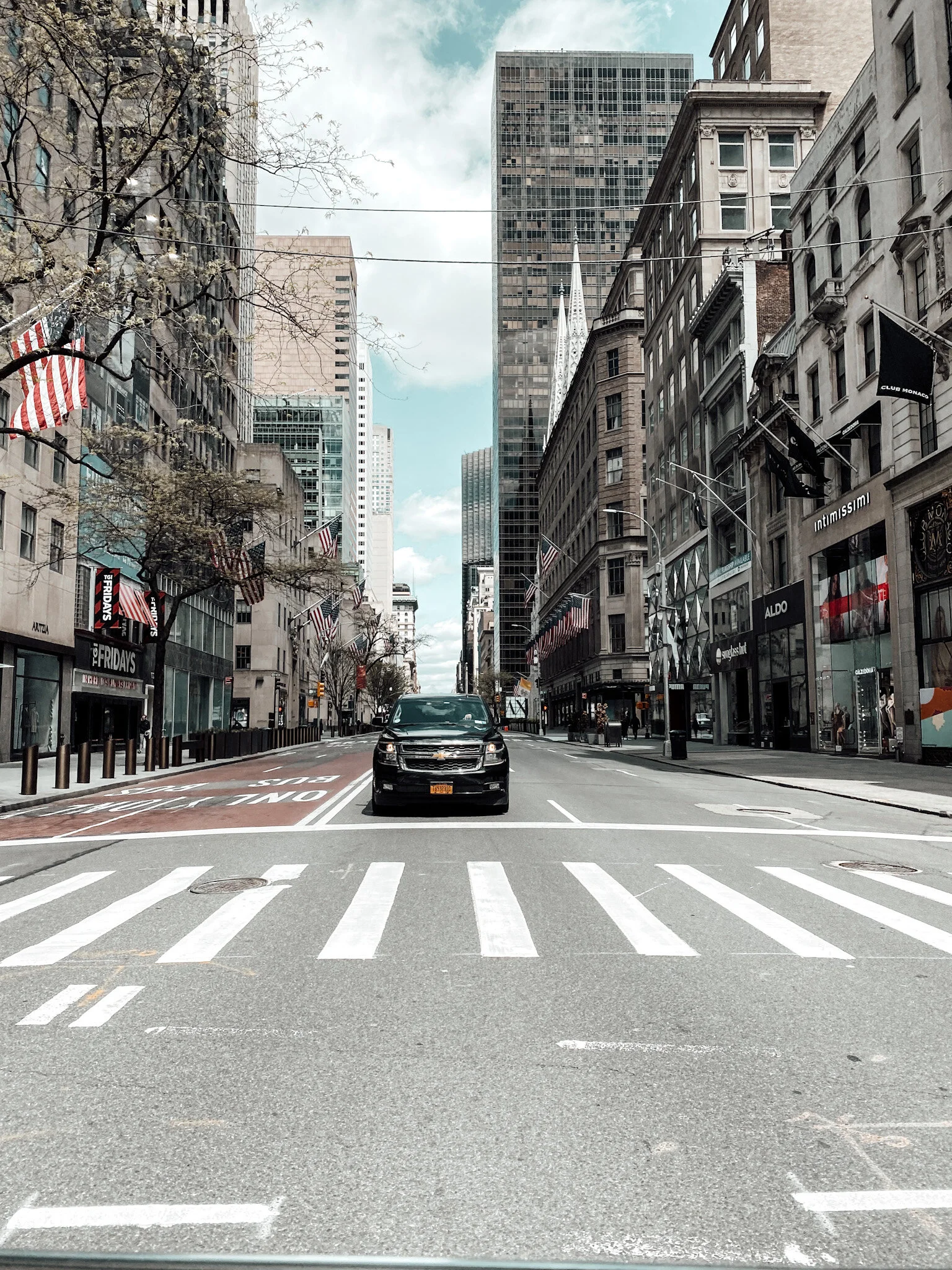A Practical Guide For Actors Moving to New York City
I officially live in New York City!
If you know me, you know I spent two years trekking into the city from New Jersey every day. As an actor living at home, I was able to save money by not paying for food or rent—and it was nice.
However… transportation costs added up.
Every day, I’d drive ten minutes to the train station, park my car, buy a parking pass, get a train ticket, catch the train (a 45-minute ride to NY Penn Station), and walk to whatever audition I needed to get to. Parking was $6, and a round-trip train ticket cost about $22. To save money, I’d sometimes have my grandparents drive me to the train station, and I eventually opted for a monthly NJ Transit pass.
But I still wasn’t fully in NYC. Even though I spent nearly every day there, it didn’t feel like home. New York City was work. New Jersey was home.
Now that I live here, I finally have the freedom to do more—see shows, take classes, audition more, hang out with friends, and get work done without constantly checking the last train home. Living in New Jersey limited how late I could stay in the city, and I hated having to leave early or crash on a friend’s couch.
This move is a huge change, and I won’t lie—I’m both excited and nervous. Living in NYC as an actor comes with its challenges. I can’t go out to dinner as much, my daily Dunkin’ habit needs to slow down, and meal prepping is officially part of my life.
If you’re thinking about making the move to NYC, here’s what I learned about signing a lease.
Our first meal in our NYC apartment - Dunkin’ Donuts, of course!
1. The market goes FAST. I mean REALLY fast.
Getting an apartment in NYC is vicious. It’s first-come-first-serve. You have to move at a quick pace.
My roommate and I were on all the rental sites - Zillow, Naked Apartments, Street Easy. Every day. Constantly checking for new listings in the areas we were looking for, praying for cheaper prices and bigger spaces. We would see listings go up one day and taken down the next… sometimes within a 24 hour time frame.
2. Beware of scams.
When you first move to New York City as an actor, the thing you should really focus on first and foremost is getting yourself a secure & safe place to live in. Be careful of scams and make sure you see the place before you move in.
3. Take into account brokers and broker fees.
There's no shortage of licensed real estate brokers in New York City—well over 27,000 in fact. So if you're in the market for an apartment for rent, and thinking of hiring a broker to help in your search, the question to ask yourself is this: is a broker's help worth the money for you?
If you have money up front, a middleman does relieve some stress. NYC brokers can find you deals you wouldn’t be able to find yourself. But they charge fees—usually 15 percent of a year’s rent, though you can occasionally negotiate (which we were able to do.)
One of the primary functions of a real estate broker is to understand your requirements and desires for your new home—including apartment size, number of bedrooms, your rental budget, building & unit amenities, your preferred neighborhoods.
Basically, a good broker will call you with news of an apartment that satisfies your criteria, meet you in front of the building, unlock the door, and, if you like the place, help you get all the paperwork done to sign a lease.
If you don't rent the apartment, they will continue to search, and call you every time they find something else on the market for you to look at.
This sort of NY real estate broker service can be very helpful for people who don't have time to get on the internet and explore the rental apartment listings on sites like this one, or if they are new to the city or moving here for the first time, and are not sure where to start looking
4. Subletting is an option.
Subletting - renting a room without adding your name to the lease - is a popular option for actors. Subletters don’t have to hunt for apartments for nearly as long or jump through as many hoops as a leaseholder would have. You can also try to find sublets in different neighborhoods to see what you like best.
A lot of actors love living in Washington Heights, West/Central Harlem, Morningside Heights and the Upper West Side.
You can join groups on Facebook such as Gypsy Housing NYC, Ghostlight Housing, NYC Actor Sublet Connection, Columbia Housing etc.
5. What’s a guarantor?
A guarantor is someone who will pay the rent if you’re ever unable to come up with the full amount. Some landlords will require a guarantor if you make below a certain salary. For us, a guarantor must make higher than 40 times the monthly rent.
Usually this is a parent, other trusted relative or friend, or anyone who’s willing to vouch for your rent-paying prowess and possibly help you in a tight spot. For us, it was our dads.
6. Air conditioning is everything.
Finding an apartment in New York City with central air is near impossible.
Around 75% of the buildings in New York City were constructed before 1960. According to the U.S. Department of Energy, central air became mainstream later in the 1960s.
Your best bet is installing a window AC unit… you’ll thank me later.
7. Avoid moving to NYC without any savings!
NYC is not exactly the most affordable city in the world.
One thing many actors new to the city can underestimate is just how expensive it is to live here. Honestly, some days it feels like $20 bills are flying out of my pocket at warp speed! Prepare yourself for sticker shock and give yourself a financial buffer with some savings before you arrive.
Unless you are lucky enough to have a good-paying job or to have a fairly well-off family that can help, you’re probably not going to be living in the most luxurious space or neighborhood in the city right away.
While there are options for affordable housing that are quite decent, it can take some searching.
8. Take advantage of every deal, discount, etc. that you can!
Did I ever mention that living in New York can be expensive? Yes?
Even for a small room in a building, you’ll be lucky to find one that’s just under $1000 a month. Then, even after thinking about rent, you still need to eat, right? And what about making sure you have enough money left over for taking class, traveling to auditions, seeing shows?
It’s worth taking advantage of anything that’s free or discounted that’s out there, so you can make the most of what you can. TodayTIx is a wonderful resource for cheap tickets to Broadway shows.
9. Explore New York City!
So you don’t have work. You don’t have an audition or a rehearsal or a show. What are you going to do?
There’s always something to do in NYC!
Like anywhere else, it’s healthy to have a nice life where you can relax, socialize, and explore other interests you may have, all outside of the theatre world. In my own specific case, as a blogger and podcaster, I would actually argue that it’s a necessity, for the sake of not just finding inspiration, but also my own sanity.
Be sure to go out, explore and enjoy!
10. Get a MetroCard.
This one might seem like a no-brainer, at least for anyone who’s visited New York, or any city that relies heavily on public transit.







Find yourself scrambling to pack for a production thats out-of-town? Don’t fret.